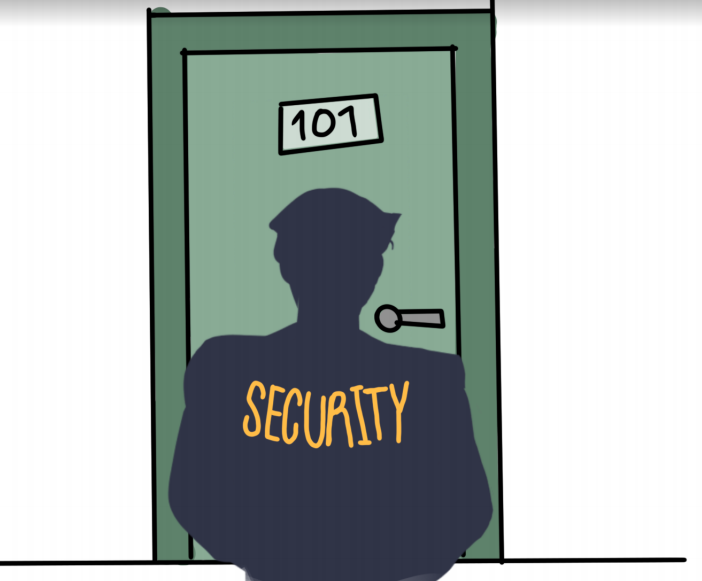In George Orwell’s 1984, constant surveillance and an oppressive government led to what Orwell criticized as a blend of totalitarianism and socialism. The society in the novel resembles many elements of panopticism, in which the fear of constant monitoring creates a restricted and pressured way of living. With the new implementation of dorm checks, I believe Deerfield is nearing these similar Orwellian characteristics.
Although a constant awareness of surveillance can make students more accountable for their actions and create a safer environment overall, where do we draw the line between safety and an infringement on dorm privacy?
Before discussing the negatives of Deerfield’s increased surveillance, it is important to acknowledge its potential positive impacts. The increased surveillance from faculty members allows Deerfield to create a safer environment for its students. It also prevents students from placing themselves within dangerous situations and allows students to be more honest about what they may be doing in the dorms.
Of course, some faults fall on the students. Students should be representing the core values and policies of the Academy, regardless of the time or the place. Faculty and residents should not have to worry extensively about our safety in the dorms. However, it is also important to acknowledge where this new surveillance may infringe on students’ privacy.
During the usual hours of random dorm patrols, students are typically relaxing from a stressful week or hanging out with friends in the dorms. They should not have to worry about adults listening to students’ private conversations. It is important that students maintain the privacy to talk freely with their friends without feeling the overbearing eyes of a faculty member.
It is essential that students and faculty members maintain a certain amount of trust, and this new dorm surveillance reduces the trust between the two community bodies. Ask any graduate, alumni, or faculty member: your Deerfield experience is centered around the relationships you make, particularly with faculty members. Such relationships are founded upon trust. To be effective, this foundation of truthfulness and reliability requires an honest and open environment. In the presence of random dorm check-ins, trust is a blatantly missing element.
In order for dorm surveillances to yield the most effective results, it is necessary to implement training for faculty members to deal with situations in the dorms. This training would allow teachers to understand where the boundary lies between students’ privacy and being a responsible guardian. Rather than students feeling as though they are constantly being observed, they can relieve themselves in knowing that faculty members are solely there for their safety and not to get students in trouble.

The purpose of this article is not to criticize faculty nor safety on campus. Rather, it should prompt our community to reconsider how student life is affected by intrusive policies. We need to remind ourselves that these policies detract from valuable student-faculty relationships and the cherished boarding life at Deerfield.

